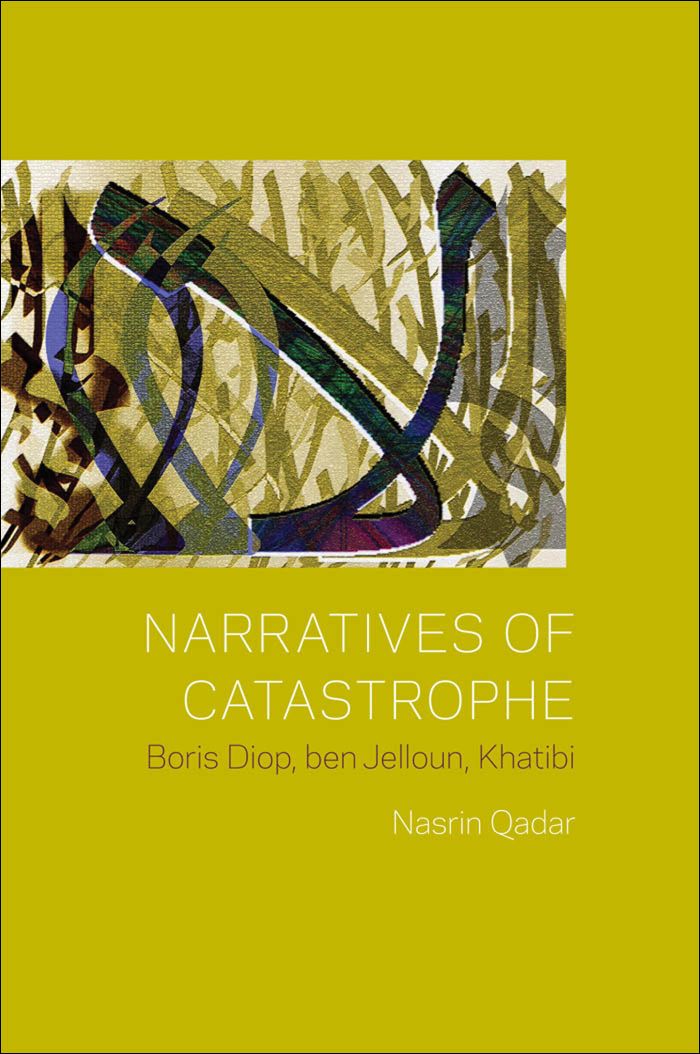Narratives of Catastrophe
Boris Diop, ben Jelloun, Khatibi

This book can be opened with

Narratives of Catastrophe tells the story of the relationship between catastrophe, in the senses of "down turn" and "break," and narration as "recounting" in the senses suggested by the French term récit in selected texts by three leading writers from Africa.
Qader's book begins by exploring the political implications of narrating catastrophic historical events. Through careful readings of singular literary texts on the genocide in Rwanda and on Tazmamart, a secret prison in Morocco under the reign of Hassan II, Qader shows how historical catastrophes enter language and how this language is marked by the catastrophe it recounts. Not satisfied with the extra-literary characterizations of catastrophe in terms of numbers, laws, and naming, she investigates the catastrophic in catastrophe, arguing that catastrophe is always an effect of language andthought,. The récit becomes a privileged site because the difficulties of thinking and speaking about catastrophe unfold through the very movements of storytelling.
This book intervenes in important ways in the current scholarship in the field of African literatures. It shows the contributions of African literatures in elucidating theoretical problems for literary studies in general, such as storytelling's relationship to temporality, subjectivity, and thought. Moreover, it addresses the issue of storytelling, which is of central concern in the context of African literatures but still remains limited mostly to the distinction between the oral and the written. The notion of récit breaks with this duality by foregrounding the inaugural temporality of telling and of writing as repetition.
The final chapters examine catastrophic turns within the philosophical traditions of the West and in Islamic thought, highlighting their interconnections and differences.
A powerful emerging scholarly voice in West African literary criticism, Qader offers a provocative study of a contemporary theme, catastrophe. . . Masterful in its expose of significant texts, this study raises more questions than it answers, particularly on the role of memory in storytelling and feminist intervention and reinvention in the recit.——Choice
Fills a jarring gap in the critical discourse on one of the most important and neglected areas in world literature.
Narratives of Catastrophe gives a new and appealing answer to a basic problem confronting many literary critics—namely: How are we to judge the political or ethical claims made in works of fiction? Qader's book is a unique blend of close reading and philosophical speculation.
Too often, African literature is read from the perspective of
anthropology or politics, the texts by which it is constituted being
then reduced to documents. Nasrin Qader eloquently argues here that
such a way of passing through the text towards what it is thought to
represent, precisely misses its presence as writing. Against such a
misrepresentation, her book reclaims African literary texts as
literature, by advocating with force and intelligence a simple
posture: attentiveness to what writing means.
Analyzes novels by Senegalese writer Boubacar Boris Diop and the Moroccan writers Tahar ben Jelloun and Abdelkebir Khatibi.——The Chronicle of Higher Education

